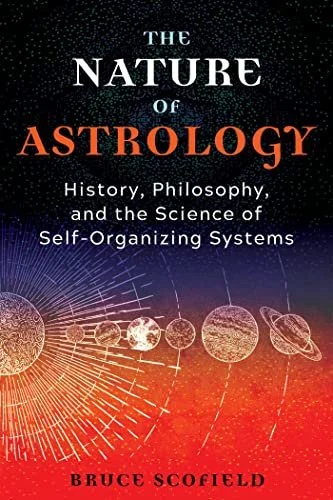While much about astrology has been discredited by science and relegated to the category of magical thinking along with fortune-telling and soothsaying, it is without a doubt deeply rooted in Western civilization, dating back to at least the Sumerians of 6,000 years ago. Much of our knowledge about meteorology, astronomy, climates, agriculture, human behavior, and more must be credited to scholars who studied astrology.
Without making any grand claims about its efficacy, in The Nature of Astrology scientist and historian Bruce Scofield offers a balanced look at the origins of the practice and its techniques for mapping and analyzing self-organizing systems like weather, migrations, stock markets and politics.
“The argument of this book is that astrology studies, with its own methodologies, self-organizing systems. It has produced a set of mapping, timing, and interpretive techniques for such systems that other disciplines cannot match,” he explains.
Similar to how phenology studies the cyclic and seasonal natural phenomena that coincidentally align with biological systems that have been recorded for centuries in folklore (“A wet, cold May? A barn full of hay.” “Fish spawn when dogwood is in bloom.”), so too may astrology offer insights into chaotic systems that defy prediction.
